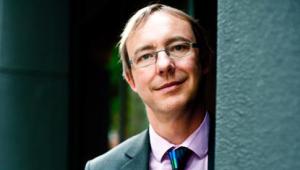By David Williams
2 February 2011
Chancellor George Osborne is risking his credibility by failing to indicate what he would do if the economy performed significantly less well than forecast, the Institute for Fiscal Studies said today.
Launching the IFS green budget this morning, economists at the influential think-tank also appeared to call for the Comprehensive Spending Review to be revised in 2012 – halfway through the four-year settlement.
Director Paul Johnson said: ‘It’s important that [the government] sets out more clearly what are the circumstances in which it might deviate from its current plans.
‘It’s clearly not the case that whatever happens in the world we will continue to follow precisely the same plans for the next five years. More credibility is to be gained in setting out what those circumstances will be, rather than credibility lost.’
Deputy director Carl Emmerson added: ‘The appropriate plan that the chancellor should have in mind is one that acknowledges the fact that the world is not going to evolve in exactly the way he expects.
‘An appropriate plan should state upfront what broad course of action should be pursued under different scenarios for how the world might evolve.
‘That would seem to us to be much more credible than the supposedly fixed plan. We’ve had fixed plans before that were revised. Do we really think the current one won’t be changed at any point over the next five years?’
He added that a more flexible plan would guard against criticism of a U-turn if the chancellor had to change course.
Emmerson also said: ‘It seems unlikely to think that your optimal Spending Review decisions made in 2010 will still be optimal in, say, 2012.
‘A review of the spending settlement at the halfway stage would seem to be the sensible thing to do.’
The institute broadly backed official forecasts for the economy and public sector finances over the next five years, calculating that borrowing as a proportion of national income would be 0.2% lower than the Office for Budget Responsibility estimate for 2015/16.
However, the IFS cautioned that the potential for variation is ‘skewed to the downside’.
The Green budget also estimated that the government would need to borrow £2.9bn less in 2010/11 than the OBR expected, due to higher Income Tax and National Insurance receipts.
Emmerson said that the sum was not significant in the context of a total annual borrowing figure of £145.6bn. He recommended that Osborne bank the saving to allow for extra headroom against potential financial difficulties further down the line.
However, the document also showed that the UK’s ageing population would mean that without a new round of spending cuts, on top of those detailed in the CSR, debt as a proportion of gross domestic product would never return to pre-crisis levels.
In addition, persistent inflation could hamper the Bank of England’s ability to support the economy with low interest rates. ‘It may therefore make sense for the government to consider ways of reducing the pace of fiscal consolidation should demand conditions deteriorate significantly,’ it stated.



















